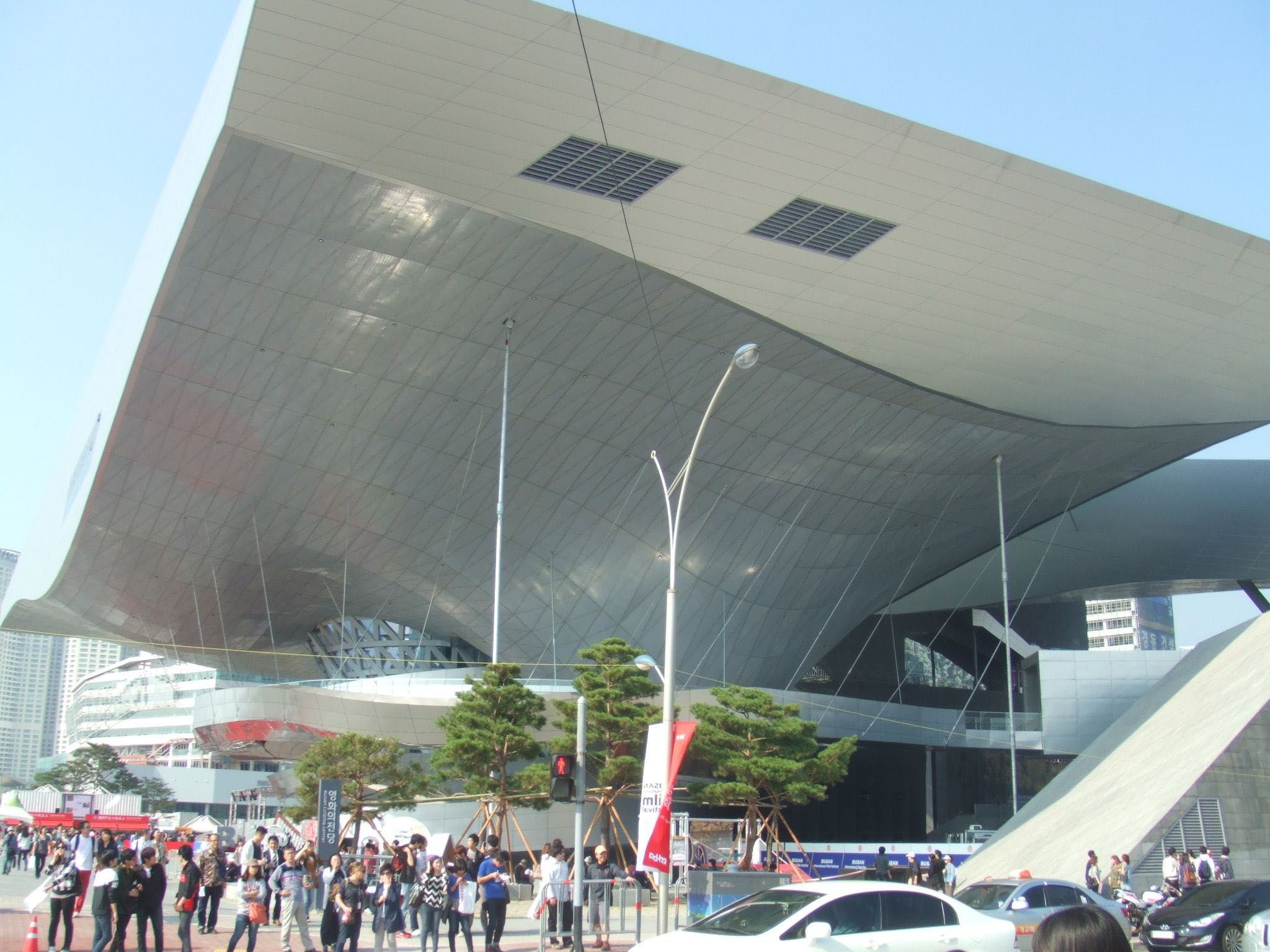"Change" was the key word at this year's Busan International Film Festival, and not just because the organizers finally succumbed to the host South Korean port city's request to change the name from "Pusan." Lee Yong Kwan took over as festival director from founder Kim Dong Ho, who is credited with turning BIFF into Asia's biggest and most important film festival. But the main news was the opening of the Busan Cinema Center, a huge facility that has been in the works for more than a decade.
The imposing structure, located in Centum City, an upscale retail and office district on the edge of Busan's resort area, received mixed reviews from festival-goers. Though its primary function is as a film exhibition venue and the festival's home, it will be used year-round as a local multi-cultural center, with opera and concert halls in addition to large cinemas. A number of foreign festival organizers expressed envy that the city would fund such a facility, though Alice Yoo, of the rival Puchon International Fantastic Film Festival, told the Hollywood Reporter that, at 30,000 sq. meters, "it's just too big for Asia."
Asia's pretty big. What Yoo meant was that Asia's film industry is still developing. South Korea's is one of the most advanced and forward-looking in the world, and one of the primary aims of BIFF is to make sure the world knows it. That may explain why BIFF's ambitions have always seemed larger than its ability to deliver on them. There were more than 300 films at this year's festival comprising 16 sections in addition to a three-day film forum for scholars, not to mention the biggest film market in Asia. It's impossible to take it all in. Like the labyrinthine new cinema center, BIFF defies anyone to make sense of it.



